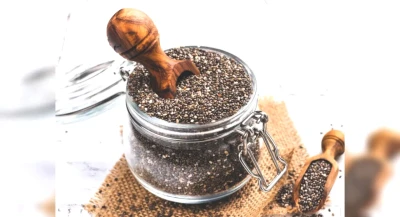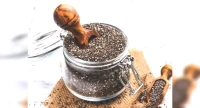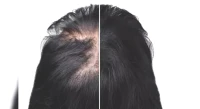Have you recently observed more strands of hair on your brush, or noticed some patches of thinning (hello, alopecia)? You are certainly not by yourself in this experience. It can be quite daunting to determine the next steps, particularly when faced with a plethora of costly remedies. Before rushing to a clinic or investing in high-priced products, consider exploring some gentle, natural home solutions. These straightforward approaches are not only gentle on your scalp, but they may also encourage hair growth in a more relaxed and chemical-free manner. One widely favored DIY mixture consists of coconut oil and onion juice. Coconut oil excels at moisturizing the scalp and fortifying hair roots, while onion juice is abundant in sulfur and antioxidants that can revitalize hair follicles. To create this remedy, warm 2 tablespoons of coconut oil, combine it with 1-2 tablespoons of freshly squeezed onion juice (grated and filtered), and gently massage it into your scalp. Allow it to sit for 30 to 60 minutes before thoroughly shampooing—perhaps even twice—to diminish the onion scent. Aim to do this weekly, and you may start to notice a healthier, better-nourished scalp over time.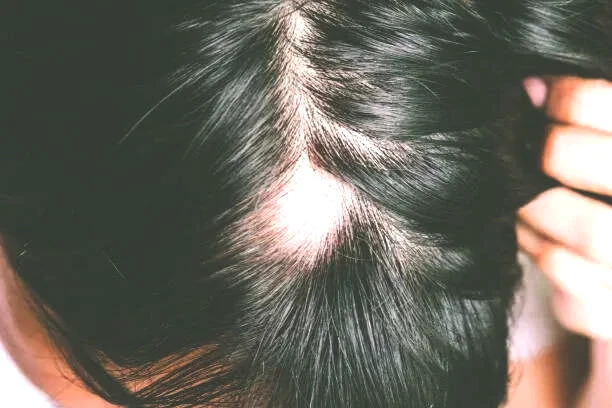 Another excellent option is rosemary oil, which is popular for good reason. Renowned for its calming and stimulating qualities, rosemary oil may actually promote hair regrowth by enhancing blood circulation to the scalp. Combine 5-6 drops of rosemary essential oil with 2 tablespoons of a carrier oil like jojoba or almond. Massage this blend into your scalp for a few minutes, let it sit for approximately 30-45 minutes (or overnight if you prefer), then rinse it out. Incorporating this into your routine once or twice a week can yield noticeable results over time.Egg masks are another favorite treatment. Rich in protein, biotin, and healthy fats essential for resilient, lustrous hair, eggs are remarkably accessible. Blend one egg with a tablespoon of olive oil and honey, and apply the mixture from roots to tips before covering with a shower cap. Let it rest for 20-30 minutes, rinse with cool water, and shampoo gently. Utilizing this every ten days or so can significantly strengthen fragile strands.Hibiscus petals and leaves are additionally fantastic for hair wellness. They are loaded with vitamin C and amino acids that contribute to strengthening hair, minimizing breakage, and even preserving its natural color. Mash a few flowers with some leaves into a paste, add water or a bit of coconut oil for consistency, and apply it to your scalp and hair. Let it rest for 30 minutes before rinsing. Doing this weekly can provide a mild yet effective enhancement.
Another excellent option is rosemary oil, which is popular for good reason. Renowned for its calming and stimulating qualities, rosemary oil may actually promote hair regrowth by enhancing blood circulation to the scalp. Combine 5-6 drops of rosemary essential oil with 2 tablespoons of a carrier oil like jojoba or almond. Massage this blend into your scalp for a few minutes, let it sit for approximately 30-45 minutes (or overnight if you prefer), then rinse it out. Incorporating this into your routine once or twice a week can yield noticeable results over time.Egg masks are another favorite treatment. Rich in protein, biotin, and healthy fats essential for resilient, lustrous hair, eggs are remarkably accessible. Blend one egg with a tablespoon of olive oil and honey, and apply the mixture from roots to tips before covering with a shower cap. Let it rest for 20-30 minutes, rinse with cool water, and shampoo gently. Utilizing this every ten days or so can significantly strengthen fragile strands.Hibiscus petals and leaves are additionally fantastic for hair wellness. They are loaded with vitamin C and amino acids that contribute to strengthening hair, minimizing breakage, and even preserving its natural color. Mash a few flowers with some leaves into a paste, add water or a bit of coconut oil for consistency, and apply it to your scalp and hair. Let it rest for 30 minutes before rinsing. Doing this weekly can provide a mild yet effective enhancement.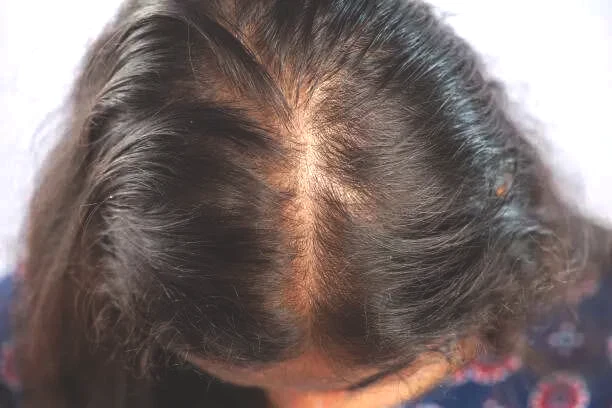 Don't underestimate the power of green tea either! This antioxidant-rich beverage can perform wonders when used as a hair rinse. It may assist in reducing hair loss while calming the scalp. Steep two green tea bags in two cups of hot water, allow it to cool, and pour it over your scalp following shampooing. Let it remain for 10-15 minutes before rinsing with plain water. Aim to incorporate this at least two to three times a week.In addition to these remedies, your daily habits significantly influence hair health. Ensure you're consuming foods rich in biotin, such as eggs, nuts, and leafy vegetables. Iron and zinc are critical as well, so include lentils, pumpkin seeds, and whole grains in your diet. Stay adequately hydrated, ensure you are resting well, and try to mitigate stress through activities like walking, journaling, or practicing brief breathing exercises since both stress levels and sleep quality can dramatically affect hair health.Before experimenting with anything new, it's always prudent to perform a patch test, particularly when using essential oils or ingredients like onion. Remember, consistency is crucial; natural remedies often require time to show results, but they are gentle and can be effective if you are persistent. While these methods are best suited for mild to moderate hair thinning, if you encounter severe or sudden hair loss, consulting a healthcare professional is advisable.Tending to your hair can serve as a soothing and empowering aspect of your daily routine. These simple, kitchen-based solutions provide a way to give your scalp a little extra care without harsh chemicals or excessive financial strain that can come with side effects. So why not give them a try and enjoy the journey of restoring your hair to health? Share your experiences with these remedies for managing Alopecia in the comments below.
Don't underestimate the power of green tea either! This antioxidant-rich beverage can perform wonders when used as a hair rinse. It may assist in reducing hair loss while calming the scalp. Steep two green tea bags in two cups of hot water, allow it to cool, and pour it over your scalp following shampooing. Let it remain for 10-15 minutes before rinsing with plain water. Aim to incorporate this at least two to three times a week.In addition to these remedies, your daily habits significantly influence hair health. Ensure you're consuming foods rich in biotin, such as eggs, nuts, and leafy vegetables. Iron and zinc are critical as well, so include lentils, pumpkin seeds, and whole grains in your diet. Stay adequately hydrated, ensure you are resting well, and try to mitigate stress through activities like walking, journaling, or practicing brief breathing exercises since both stress levels and sleep quality can dramatically affect hair health.Before experimenting with anything new, it's always prudent to perform a patch test, particularly when using essential oils or ingredients like onion. Remember, consistency is crucial; natural remedies often require time to show results, but they are gentle and can be effective if you are persistent. While these methods are best suited for mild to moderate hair thinning, if you encounter severe or sudden hair loss, consulting a healthcare professional is advisable.Tending to your hair can serve as a soothing and empowering aspect of your daily routine. These simple, kitchen-based solutions provide a way to give your scalp a little extra care without harsh chemicals or excessive financial strain that can come with side effects. So why not give them a try and enjoy the journey of restoring your hair to health? Share your experiences with these remedies for managing Alopecia in the comments below.
Alopecia is a medical condition characterized by hair loss on the scalp or other areas of the body. Its severity can vary from mild thinning to total baldness, arising from multiple factors, including genetics, autoimmune disorders, hormonal fluctuations, stress, or specific medications. The most prevalent form is androgenetic alopecia (pattern baldness), while alopecia areata represents an autoimmune variant in which the immune system attacks hair follicles. Although not life-threatening, alopecia can deeply influence a person's self-image and emotional health. Treatment options differ based on the type and underlying cause, ranging from medications to lifestyle adjustments or hair restoration procedures.
If you observe sudden or patchy hair loss, significant shedding lasting several weeks, or if hair loss is accompanied by symptoms such as itching, redness, or pain on the scalp, it's crucial to consult a doctor. It’s also wise to seek medical guidance if there’s a family history of hair loss, if you experience other symptoms like fatigue or unexplained weight fluctuations, or if your hair loss impacts your confidence and daily activities. Early diagnosis can assist in pinpointing the underlying cause and improving treatment outcomes.
The reversibility of hair loss due to alopecia hinges on its type and cause. In certain cases, like temporary hair loss triggered by stress, illness, or medications, hair may regrow once the causative factor is addressed. However, for autoimmune types like alopecia areata, regrowth is possible but may be variable and may need treatment. In instances of scarring alopecia, where hair follicles sustain permanent damage, hair loss is generally irreversible. Prompt diagnosis and intervention enhance the likelihood of regrowth.
Home remedies offer a gentle and natural approach to fostering hair health and may help slow hair loss in specific types of alopecia. Ingredients like coconut oil, aloe vera, onion juice, and rosemary oil are commonly applied to nurture the scalp, enhance blood circulation, and alleviate inflammation. Although these remedies might not cure alopecia, they can promote a healthier scalp environment and complement medical treatments. Nonetheless, it's vital to recognize that results may vary, and ongoing or significant hair loss should be evaluated by a healthcare professional without delay.


